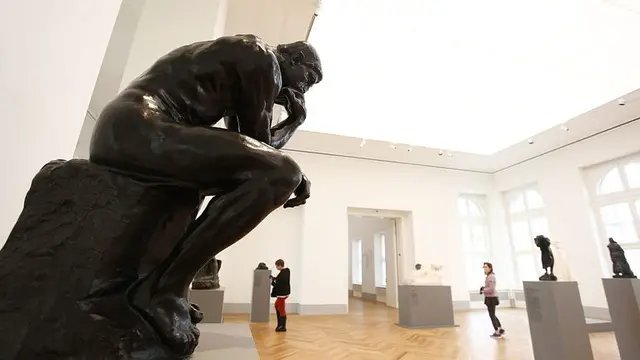The concept of free will is fundamental to human society - our legal systems are dependent on it - but neuroscientists have struggled to identify it in the human brain.
Modern science poses a profound philosophical problem: If the laws of physics govern the brain's electrical activity then how can free will actually exist?
And if free will doesn't exist, how can individuals be held accountable for their actions?
Brain signals known as readiness potential (RP) which scientists believe proceed not only voluntary movements but also the intention to move, are one of the strongest arguments against the existence of free will.
Other researchers have countered that RP signals may simply be an artefact of measurement and not actually something which determines the choices we believe we make.
Now, new research from the Ecole Polytechnique Federale de Lausanne (EFPL) in Switzerland has investigated the origin of RP signals themselves.
They hope that the origin of the RP could provide some insight into how the human brain actually comes to form decisions and exercise choices.
In the study published in the journal Nature Communications, the researchers suggest that the origin of RP signals, and thus free will, is linked to breathing.
"The regular cycle of breathing is part of the mechanism that leads to conscious decision-making and acts of free will. Moreover, we are more likely to initiate voluntary movements as we exhale," said the EFPL researchers.
The paper suggests that breathing patterns, and specifically exhaling, could be used to predict when a decision is made - although not what it will be.

Image:The legal system is based on people being accountable for their actions
Olaf Blanke, EPFL's Foundation Bertarelli Chair in Cognitive Neuroprosthetics and the paper's senior author, said the findings suggest acts of free will are affected by signals from other systems of the body.
He said: "That voluntary action, an internally or self-generated action, is coupled with an interoceptive signal, breathing, may be just one example of how acts of free will are hostage to a host of inner body states and the brain's processing of these internal signals.
"Interestingly, such signals have also been shown to be of relevance for self-consciousness," Mr Banke noted.
It might not just be limited to breathing either. RP signals from the stomach could potentially drive the human desire to hunger after particular foods.
"You may be tempted to blame acts of chocolate binging on interoceptive electrical signals hijacking your free will," the EPFL team wrote, noting how signals from the stomach could prompt people to reach for a snack.
"The gut-mind connection is an active field of research and interoceptive messages sent to the brain certainly impact food cravings," they added.
"[But] for now, this latest EPFL research only improves predictions of when you will indulge in that craving, and not what you actually crave."
 简体中文
简体中文





